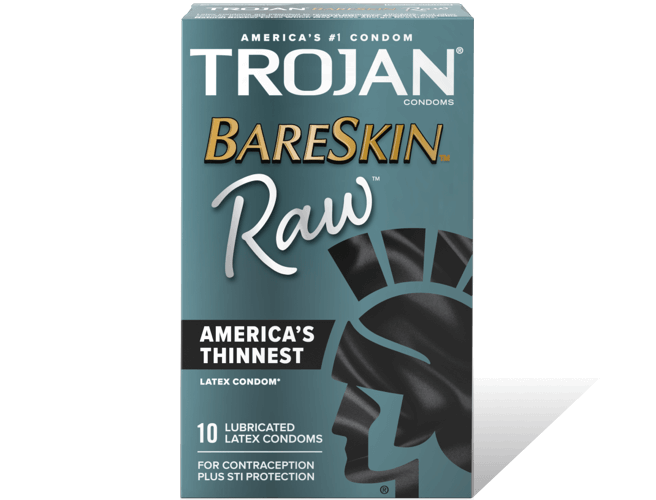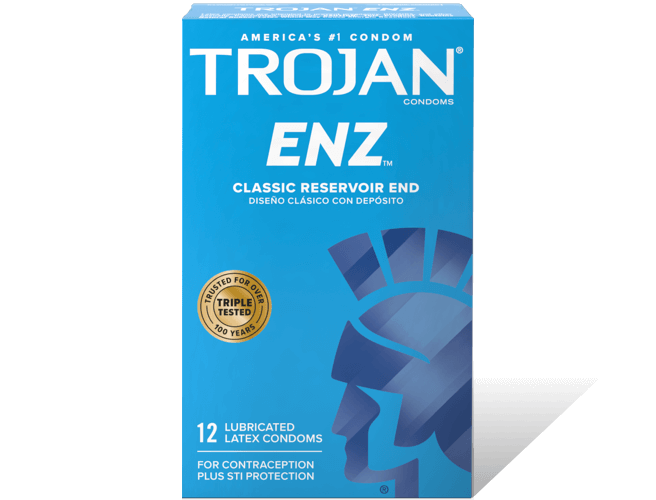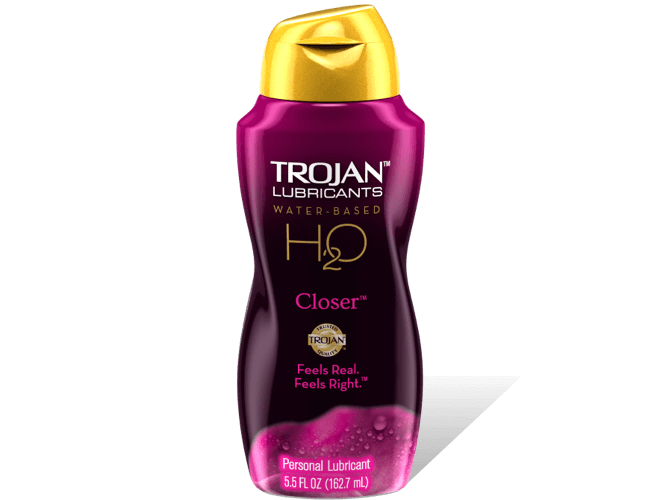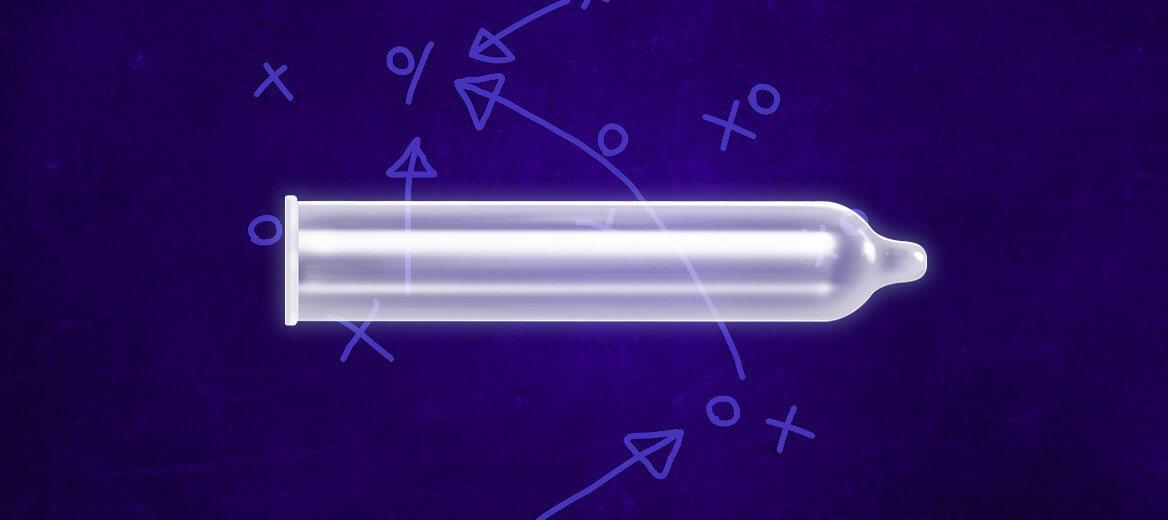Sexual Wellness
Do Condoms Work to Prevent Pregnancy?
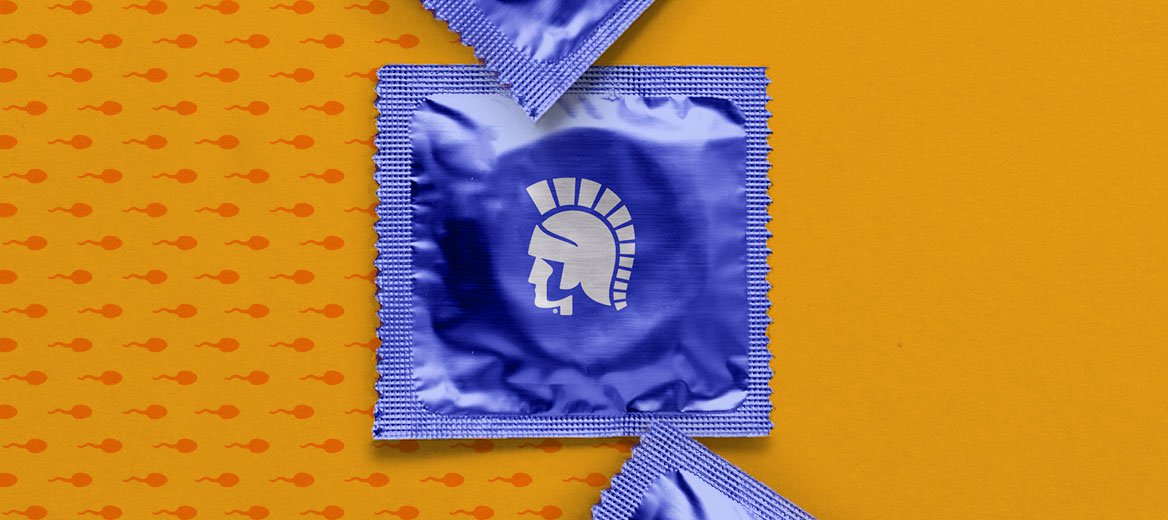
Condoms are an excellent type of birth control. They’re 98% effective when used correctly every time you have penis-in-vagina sex. Condoms are easy to find, easy to use, inexpensive, and don’t require a prescription. They can be your primary method of preventing pregnancy or a back-up method when you need one. Plus, condoms are the only birth control option that also protects against sexually transmitted infections (STIs).
This article will give you more information about how well condoms can prevent pregnancy and help you avoid some common mistakes people make when using condoms as birth control.
As a heads up, in this article we are talking exclusively about penis-in-vagina sex. We know that not all couples have these parts and that all couples, regardless of body parts, do lots of other sexy things, but P-in-V is pretty much the only thing that comes with a risk of pregnancy so that’s what we’re focused on here.
How effective are condoms at preventing pregnancy?
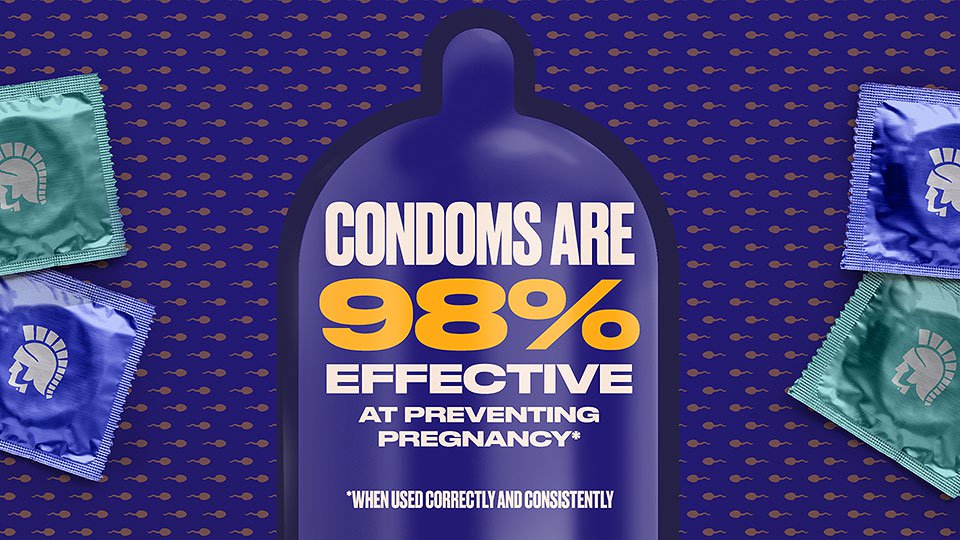
Condoms are 98% effective at preventing pregnancy when used consistently and correctly. Make sure you use an unopened, not expired condom that fits you properly and that you put it on before penetrative sex and keep it on until after you orgasm.
What are the most common condom mistakes people make?
The most common condom mistakes are fairly easy to avoid. Top condom mistakes include:
Not wearing a condom
Putting a condom on too late
Taking a condom off too early
Putting a condom on incorrectly
Using an expired condom
Using a condom that doesn't fit and could slip off
We can’t blame a condom for an unintended pregnancy if it never makes it out of the night table drawer or lands on the floor before sex is over. For condoms to be effective, you have to wear one, put it on correctly before penetration, and keep it on the entire time you're having penis-in-vagina (PIV) sex.
Here are some tips for getting the most protection out of your condom:
Tips for using condoms correctly to prevent unintended pregnancy
Always have a condom nearby. Buy condoms ahead of time even if you’re not sure you’ll be getting lucky soon. Throw some in your purse, backpack, or whatever you’re carrying around. Keep a few in the bathroom. Have a stash in your desk drawer. Make sure you keep condoms in a safe place so they do not go bad before their expiration date.
Put the condom on before sex starts. There can be sperm in precum, so if you’re interested in preventing pregnancy, put the condom on before the penis and vagina touch.
Find your fit. Condoms come in a lot of shapes and sizes. They should be snug at the bottom and have a little room at the top for ejaculate. A condom that is too loose at the base might fall off and one that is too tight might be uncomfortable and more likely to break. Finding the right condom is about finding the right size, fit and shape that is most comfortable for you and your partner.
Follow instructions. Condoms are super easy to use, but it never hurts to review how to put on a condom.
Use lots of lube. Wetter sex is better sex. Using lube cuts down on friction which makes sex feel better and can reduce the risk of condom breakage. Just remember to use water- or silicone- based lube because oil-based lubricants can break down the latex in condoms.
Leave it on until the end. Condoms work by catching ejaculate (cum) which contains sperm. If it’s in the condom, the sperm can’t get to the egg and pregnancy can’t happen. If you or your partner takes the condom off before ejaculation, a condom can’t do its job.
Pull out pretty quickly. After ejaculation, the penis starts to get softer which means the condom doesn’t fit as tightly around it anymore and ejaculate can leak out. Take a few beats to bask in your orgasm and then hold on to the bottom of the condom to keep it in place while you pull the penis out of the vagina. Then dispose of your condom in the garbage.
Only use each condom one time. All condoms are single use only. So, once it’s been used, that’s it—even if you or your partner didn’t ejaculate—it should go in the trash.
What do I do if a condom breaks or slips off during sex
Condoms don’t break or slip very often. Most studies show that condoms break about 2% of the time and slip off an additional 2%, though some studies do show higher rates. Using condoms properly and following the tips above can help avoid this.
If a condom does break or slip, stay calm. What to do—and your risk of pregnancy—depends on what happened and when:
If a condom breaks while you’re putting it on or before sex starts, simply throw that one away and get another. This does not pose a risk of pregnancy.
If you feel the condom break during sex, stop, pull out, and put on a new condom. If this happens before ejaculation your risk of pregnancy is low (though not zero because, as we said before, there can be sperm in pre-cum).
If you or your partner feel the condom slip off during sex, stop, pull out, and then try to get the condom out of the vagina using your fingers or your partner’s fingers. Again, if this is before ejaculation your risk of pregnancy is low.
The biggest risk of pregnancy would be a break or slip that happens during or after ejaculation or one that you don’t notice until then. In this case, you may want to consider using emergency contraception, sometimes called the morning-after-pill, which can prevent pregnancy when taken soon after sex. Emergency contraception is available over-the-counter in drug stores and pharmacies.
Can I use a condom with another form of birth control?
Absolutely. People definitely use condoms even if they’re on the pill or using another type of birth control like an IUD. Not only does this decrease your chances of becoming pregnant, it also adds protection against STIs.
Condoms are also a really good back up birth control method. Health care providers recommend using them if you miss some birth control pills, are taking certain antibiotics (which can reduce the effectiveness of hormonal contraceptives) or are in between methods (maybe you’re waiting to get your implant or haven’t quite decided if you’re ready to commit to an IUD). Couples who use natural family planning methods to track when they are ovulating often use condoms if they want to have sex during their most fertile days and avoid pregnancy.
Don’t most couples stop using condoms once they’ve been together or dating for a while?
The factors that go into choosing a birth control method are very personal, ranging from your health and family history to your relationship and your ability to remember if you took your pill last night. While some couples start with condoms and then opt for another birth control option, others keep using condoms as their primary method of preventing pregnancy or in addition to another contraceptive.
Some people like the added security of STI prevention that condoms provide, some want to avoid hormonal birth control methods, and others like the easy clean up after sex that comes with using a condom. Like we said, it’s personal.
What if my partner doesn’t want to wear a condom?
Sometimes we assume that people—especially people with penises—are going to be opposed to condoms, but that’s not necessarily true. Start with an open and honest conversation about birth control and STI prevention with your partner. Explain why using condoms is important to you. That may be enough.
If your partner is resistant to using condoms, find out why. Do they think that asking for condoms is a sign you don’t trust them? If so, reassure them that this isn’t the issue. Did they use condoms in the past and not like them? If so, find some new types of condoms that you can try together.
Condoms come in many different shapes and sizes, some are textured, and others have special lube that warms or tingles. Offer to work your way through a variety pack so they can find something that they like—the 40-count pleasure pack promises a lot of sex in one box. A condom finder quiz can also help you and your partner find the condom that will work best for you.
We know that talking about sex can be a little awkward, but it’s important to talk ahead of time to make sure you’re on the same page about condoms, pregnancy prevention, and more. If your feeling anxious about the conversations to come, check out our advice for communicating with a partner.
Are condoms a good method of birth control?
Yep. Condoms are very effective at preventing unintended pregnancy, they’re easy to get (they don’t require a visit to a doctor), easy to find (they’re available online, in drug stores, supermarkets, gas stations, and even bathroom vending machines), and easy to use (they just take a few seconds to put on).
With very little advanced planning, condoms can be used as your primary method of contraception, at the same time as another method like the birth control pill or implant, or as a back-up method when you need a little extra protection. And, they are the only form of contraception that also protects against STIs.
